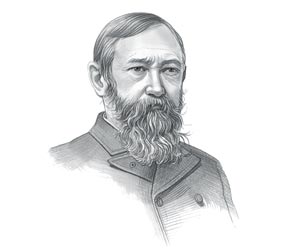|
|
|
|
|
The Lakota Sioux were led by Spotted Elk, also known as Big Foot. The conflict resulted in the massacre of nearly 400 Lakota Sioux the majority of which were women and children.
Wounded Knee Creek
Wounded Knee History: The Ghost Dance
Movement Facts about
Wounded Knee Massacre The Ghost Dance Movement started in 1888 by Wovoka spread words of hope among the tribes, especially the Lakota Sioux of the Great Plains. The Ghost Dancers quickly increased in number. Wovoka was clear that the Ghost Dance was a peaceful movement and there should be no fighting. Two Sioux chiefs, Grant Short Bull and Kicking Bear, believed that militant action would accelerate the removal of the white man from North America. The Battle of Little Bighorn was fought less than 20 years previously. The memory of the shocking defeat of the 7th Cavalry led by General George Custer against Chief Sitting Bull unnerved the US Government who attempted to ban the Ghost Dance. An attempt was made to arrest Chief Sitting Bull on December 15, 1890 at the Standing Rock Reservation. A gun fight broke out and Chief Sitting Bull was killed. Twenty-eight soldiers were killed and another 30 were wounded. Fearing further repercussions, Chief Spotted Elk, also known as Big Foot, led the followers of Sitting Bull to the "Bad Lands" of Dakota and to the Pine Ridge Indian Reservation to seek shelter with Chief Red Cloud. They were pursued by the U.S. Army but avoided them for 5 days. During this time Chief Spotted Elk contracted pneumonia and became extremely sick. The government ordered that the Native Indians should be compelled to give up their weapons, believing that the disarming of the Indians was the only way to ensure peace. On December 28, the 7th Cavalry, under the leadership of Colonel James W. Forsyth, intercepted the ailing Spotted Elk and his people at near Porcupine Butte and ordered them to camp 5 miles away at Wounded Knee Creek. Colonel James W. Forsyth ordered them to make ready to give up their weapons. The Native Indians complied with the request and stacked their guns and knives outside the tepee of Spotted Elk. The 7th Cavalry had surrounded the Native Indian camp that consisted of families with young children and babies. The troops were supported by four Hotchkiss guns. The Hotchkiss gun was a type of Cannon consisting of a revolving barrel machine gun designed to be light enough to travel with cavalry. The revolving Hotchkiss cannon was capable of firing 68 rounds per minute with a range of 2,000 yards. Chief Spotted Elk had no intention of fighting the cavalry. There were 500 US troops and Chief Spotted Elk had less than 100 men. Soldiers entered the camp to collect the weapons. According to some records, a Shaman named Yellow Bird began to perform the Ghost Dance. Yellow Bird resisted being searched by a soldier. A gun went off - and the massacre began. Yellow Bird was shot dead. The soldiers entered the tepee of the sick Spotted Elk and he was killed where he lay. Shots were fired at all the people who desperately tried to escape the carnage. But the guns kept firing. Soldiers on the hill fired at the teepees with the Hotchkiss guns. The bodies of men, women and were scattered for over a mile from the camp site. After a terrible blizzard that lasted for three days the frozen bodies of 400 Native Indians were collected and, without ceremony, thrown in a mass grave. Army casualties numbered 25 dead and 39 wounded. The Army awarded twenty Medals of Honor and Colonel James W. Forsyth was promoted to Major General. |
| US American History |
| 1881-1913: Maturation Era |
|
|
|
|
|
First Published2016-04-19 | |||
|
Updated 2018-01-01 |
Publisher
Siteseen Limited
| ||
|
|

